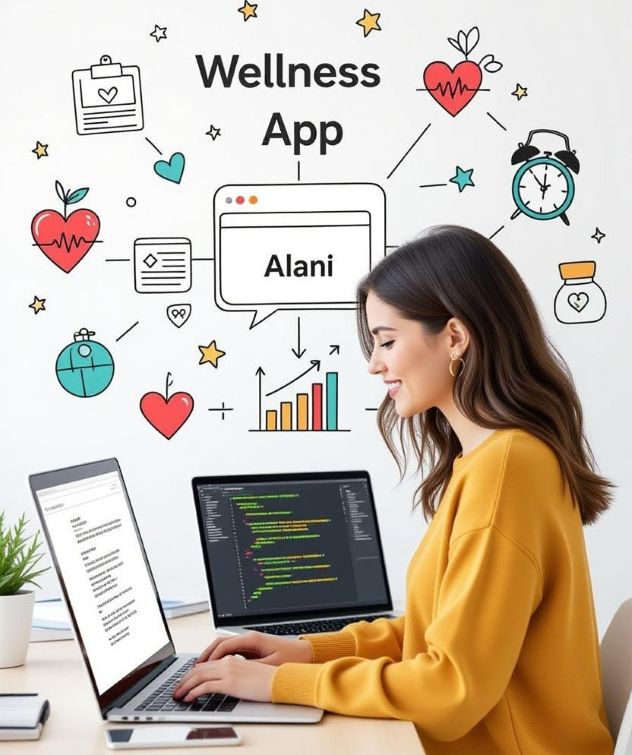
Technology has quietly turned into a mirror for self-image. From step counters to AI skincare scanners, health and beauty apps now shape how people view their bodies and habits. Developers aren’t just coding programs, they’re influencing ideas of wellness, confidence, and beauty standards. As these apps grow more advanced, they inspire empowerment while also sparking debate about the ethics of digital body management.
Many beauty and fitness platforms now integrate supplement-inspired tracking tools. Some, like those referencing gml apeti tablets, highlight how tech mimics the supplement market’s promise of transformation. Users can log their meals, monitor progress, and receive feedback on how to improve. While this personalization offers convenience, it can also blur the line between healthy motivation and pressure for perfection. Developers face a growing challenge: how to create tools that build confidence instead of obsession.
The Rise of Body-Tracking Technology
Tech-driven wellness has changed how people define progress. Instead of focusing on overall health, some apps push numerical perfection like calories, steps, or hours of sleep. Health and beauty apps collect vast amounts of personal data, often using AI to provide tailored recommendations. While these insights can promote healthier habits, they also risk amplifying insecurities when users chase unrealistic goals.
Developers are now taking a more mindful approach. By designing with empathy, coders are learning to balance performance tracking with emotional well-being. They introduce features such as positive feedback loops, mindfulness reminders, and customizable body goals. This change helps users celebrate small victories instead of comparing themselves to filtered ideals often seen on social media.
Ethical Coding and Emotional Design
Ethical design means coding with care for human psychology. Developers who build health and beauty apps must consider how visual cues, metrics, and notifications affect mental health. As software companies face increased competition in acquiring B2B clients, the pressure to innovate responsibly grows. Ethical coding ensures that every digital nudge inspires balance, not anxiety. A progress bar that fills too slowly or alerts that highlight “failures” can discourage users. Ethical coding ensures that every digital nudge inspires balance, not anxiety.
Many companies are embracing transparency in data use. Users want to know where their information goes and how it’s used. Clear privacy settings and options to delete data anytime are becoming standard. This openness builds trust and aligns with global trends toward responsible AI. Health apps that encourage positive self-image rather than perfectionism often see higher user retention and satisfaction.
AI’s Role in Personalizing Wellness
Artificial intelligence is revolutionizing wellness technology. AI analyzes behavior patterns, sleep cycles, and even skin tone to deliver precise suggestions. But this precision must be guided by ethical frameworks. Without thoughtful design, AI could reinforce harmful stereotypes about beauty or body size. For instance, recommending extreme diets or highlighting “ideal” body shapes could have lasting negative effects.
Responsible coding ensures that personalization remains inclusive. Developers can program algorithms to celebrate diversity, showing that wellness comes in different forms. Some modern beauty apps now use adaptive visuals and language, shifting focus from “fixing flaws” to “enhancing natural traits.” This reframing supports mental health while still encouraging users to pursue their goals safely.
Bridging Health and Technology
Collaboration between developers, psychologists, and medical experts is essential. These partnerships ensure that technology aligns with real health science, not unrealistic aesthetics. Apps inspired by supplements such as gml apeti tablets may help track nutrition or appetite but must always emphasize balance over excess. Integrating educational content within apps can teach users about metabolism, nutrition, and body positivity in simple, relatable terms.
- Encourage realistic, science-backed goals.
- Provide emotional support through positive language.
- Promote transparency about how data influences recommendations.
- Celebrate diverse body types and skin tones in visuals.
These features redefine what beauty technology means. When coding prioritizes mental wellness and inclusivity, users gain more than progress—they gain confidence. The goal is no longer to measure up to unrealistic standards but to appreciate health and beauty as personal journeys.
From Code to Confidence
The next generation of wellness apps represents more than just innovation. They show how code can nurture compassion, balance, and authenticity. By combining health science, psychology, and technology, developers can build apps that empower rather than pressure. As beauty and wellness platforms evolve, their influence on body image culture grows stronger. What matters most is the intent behind the code, whether it uplifts or undermines the people using it.
Ultimately, coding confidence is about designing for humanity. Health and beauty technologies that respect user emotions and diversity set a new ethical standard for the digital world. When developed with care, even apps referencing products like gml apeti tablets can promote balance, self-awareness, and true wellness. Technology, when coded with empathy, becomes more than a tool, it becomes a mirror reflecting self-acceptance.
